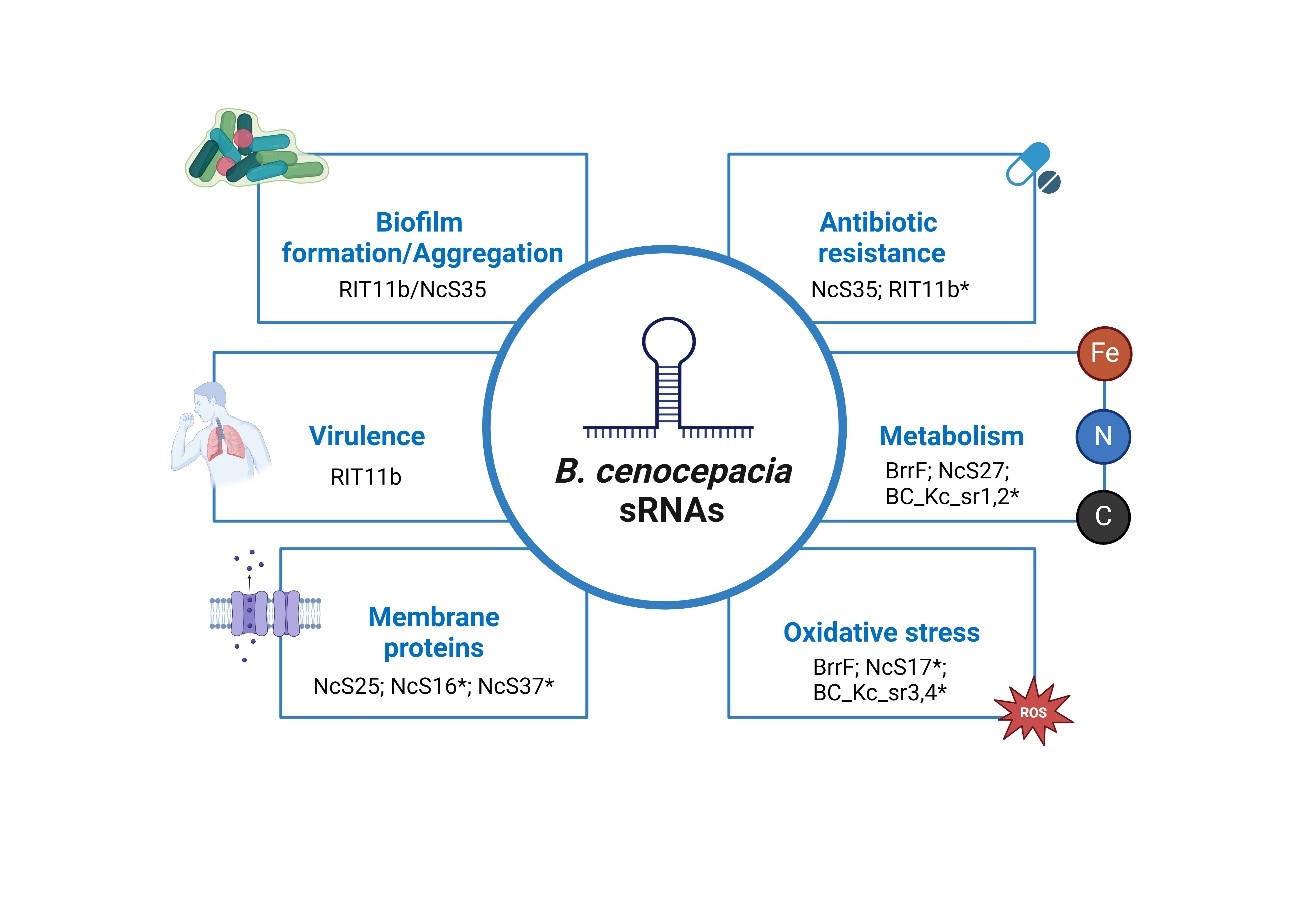Non‑coding regulatory sRNAs from bacteria of the Burkholderia cepacia complex

Small non-coding RNAs (sRNAs) are key regulators of post-transcriptional gene expression in bacteria. Hundreds of sRNAs have been found using in silico genome analysis and experimentally based approaches in bacteria of the Burkholderia cepacia complex (Bcc). However, and despite the hundreds of sRNAs identified so far, the number of functionally characterized sRNAs from these bacteria remains very limited. In a recent paper published in the journal Applied Microbiology and Biotechnology, Gonçalo R. Matos Joana R. Feliciano and Jorge H. Leitão from IBB/BSRG reviewed the general characteristics of sRNAs and the main mechanisms involved in their action as regulators of post-transcriptional gene expression, as well as the work done so far in the identification and characterization of sRNAs from Bcc. The number of functionally characterized sRNAs from Bcc is expected to increase and to add new knowledge on the biology of these bacteria, leading to novel therapeutic approaches to tackle the infections caused by these opportunistic pathogens, particularly severe among cystic fibrosis patients. See more.
